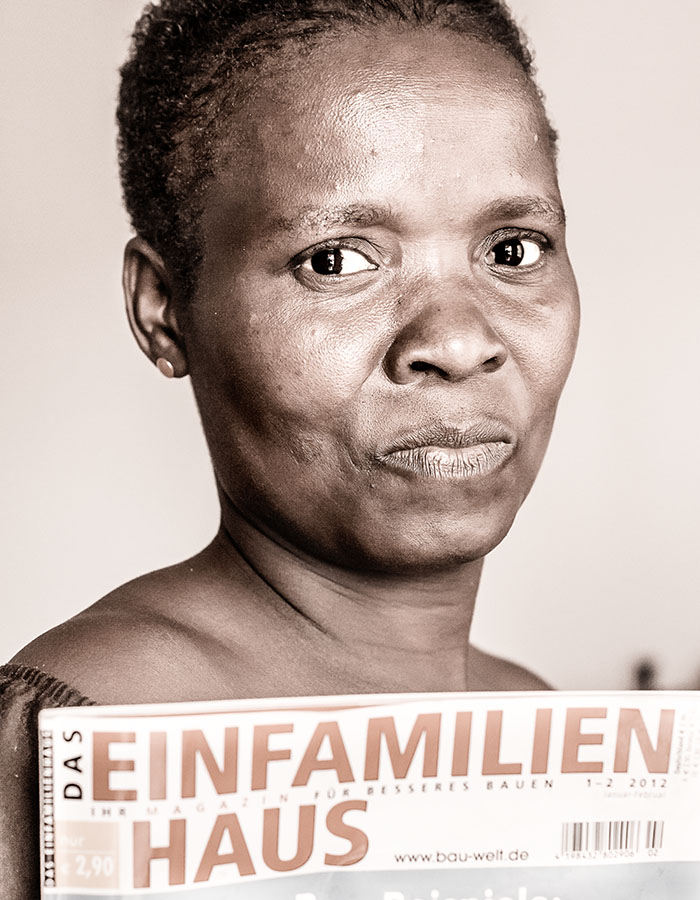Language: German Subtitles: English/Portuguese Format: HD 8:25 min
Excerpts from the play:
I am a washing machine repairwoman. Where are the washing machines in this country??? I am a washing machine repairwoman! Haven’t we learned to be confident? Haven’t we learned to take our lives in our own hands? Don’t we have a different way of working and a different way of holding ourselves? And haven’t we seen how the Germans have protested on the streets, overturning a whole political system? We have to take to the streets! Let’s take to the streets! Why don’t they recognize our degrees? Where is all our money we paid into the system all those years? Here we are surrounded by corruption! They let us work as national slaves, and then didn’t give us what we earned! Let’s all take to the streets! Instead of becoming the elites as promised, we, the trained people in this country, are sitting in the third row and have no influence on this society!
You guys are all lazy drunks! You only protest and don’t work! You are nothing but a bunch of rowdies, wasting their day with rubbish! You mourn a system, a philosophy, and a time which all don’t exist anymore! You will die out like the dinosaurs! We have learned to stand up for our rights. We don’t deserve injustice! The megaproject has failed! What will come of us – 20,000 Mozambicans? Our life can’t just be proclaimed a failure, our experiences can’t just be proclaimed invalid!
Madgermanes: in Mozambique, this is the term for former Mozambican contract workers who lived and worked in the GDR. In this short film two events are interwoven.
10.04.2013: one of the weekly Wednesday demonstrations that have been taking place for 20 years. These see about 200 angry Madgermanes bringing the city of Maputo to a standstill because they are still demanding payment of their wages (up to 60 % of the income they are owed for work they did in the GDR). They dance, whistle, beat plastic drums, wave German flags and denounce the government as well as the president as corrupt. They block major intersections, chanting through loudspeakers. The camera captures images of the city, the size of the demonstration and the drawn faces of the demonstrators. Some of them identify themselves to the camera by name, saying where and when they worked in the GDR and whether they have left children there. Cossa, who leads the march with a prayer and a traditional song, carries a list with the names of those who came to the demonstration. When asked about the importance of this list, he explains that should the government begin to repay the wages, these demonstrators ought to be the first to receive their compensation.
Elisa Boana, on the other hand, supports her colleagues’ protests that are so despised throughout the country, but does not herself have time to participate in them. She has two children to support and works in the home of a German-Mozambican family. While taking care of the baby and ironing in a cramped room, she tells us about her difficult struggle for survival, the money that was never paid and that she’s still waiting for. Until the baby starts crying.





